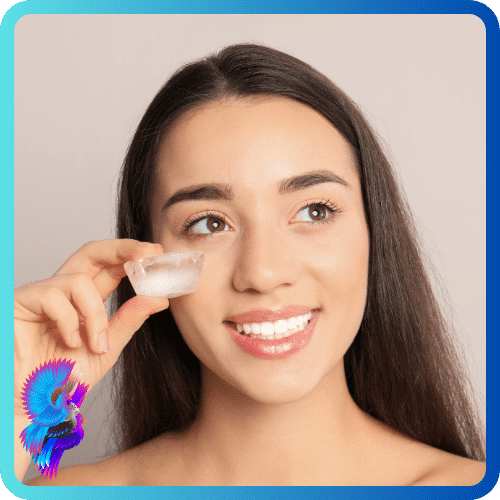Advertisements
If you have ever experienced redness, itching, burning, or stinging on your skin after using certain products or being exposed to certain conditions, you may have sensitive skin.
Sensitive skin is a common condition that affects many people and can cause discomfort and frustration.
In this article, we will explain what sensitive skin is, the different types of sensitive skin, the common triggers that can cause sensitive skin reactions, and how to treat and prevent sensitive skin problems.
What is sensitive skin?
Sensitive skin is a condition that means your skin is more prone to reactions such as redness and itching. Most people who have sensitive skin notice occasional or frequent itching, burning, and stinging on patches of skin.
Sensitive skin is not a disease or a diagnosis, but rather a symptom of an underlying cause.
Environmental factors, genetic factors, or a combination of both can cause sensitive skin.
There are four main types of sensitive skin:
Allergic sensitivity:
An immune system response to a particular substance that comes into contact with the skin is what causes this type of sensitive skin.
The substance can be anything from pollen to cosmetics to metals.
The reaction can range from mild to severe and can include symptoms such as hives, swelling, itching, and blisters.
Breakout-prone sensitivity:
This type of sensitive skin is characterized by frequent breakouts that look like acne with red bumps and pustules.
Hormonal changes, stress, diet, or skincare products that irritate the skin or clog the pores can all cause breakouts.
Heat-activated sensitivity:
Exposure to heat sources like the sun, hot water, saunas, or steam baths causes this type of sensitive skin.
The heat causes the blood vessels in the skin to dilate and release inflammatory substances that cause redness, flushing, and itching.
Dehydrated sensitivity:
A deficiency in moisture in the skin barrier is the root cause of this type of sensitive skin.
The skin barrier is the outermost layer of the skin that protects it from external aggressors and prevents water loss.
When the skin barrier is damaged or compromised, the skin becomes dry and loses its ability to protect itself from irritants and allergens.
The result is tight, flaky, rough, and dull-looking skin that feels itchy and uncomfortable.
How do you identify if you have sensitive skin?
you experience frequent or occasional reactions such as redness, itching, burning, or stinging on your skin after using certain products or being exposed to certain conditions.
You have difficulty finding skincare products that suit your skin without causing irritation or breakouts.
You have a history of allergies, eczema, rosacea, or other skin conditions that make your skin more reactive.
You have fair or thin skin that shows signs of sun damage such as sunburns, freckles, or wrinkles.
If you are unsure if you have sensitive skin or not, it is always a good idea to see your healthcare provider and get it checked out. They can help you determine the cause of your sensitivity and recommend the best treatment options for your specific case.
What are the common triggers for sensitive skin?
Several triggers can cause sensitive skin to react.
Some common triggers include Hot water:
Hot water can strip away the natural oils and moisture from your skin barrier and make it more vulnerable to irritation and dryness. It is recommended to use lukewarm water instead of hot water when washing your face or taking a shower or bath.
Too much soap:
Soap can also remove the natural oils and moisture from your skin barrier and disrupt its pH balance.
It is advised to use gentle cleansers that are fragrance-free and hypoallergenic instead of harsh soaps that can dry out and irritate your skin.
Regular laundry detergents:
Laundry detergents can contain chemicals such as fragrances, dyes, and enzymes that can leave residues on your clothes and bedding that can irritate your skin when you wear them or sleep on them.
It is suggested that you use mild laundry detergents that are free of these additives and rinse your clothes well after washing them. Fragrances:
Fragrances are one of the most common causes of allergic reactions on the skin.
They can be found in many products, such as perfumes, colognes, deodorants, candles, air fresheners, cosmetics, and skincare products.
They can trigger symptoms such as rashes, hives, itching, and swelling on the skin.
It is recommended to avoid products that contain fragrances or use fragrance-free alternatives instead.
Tight or scratchy wool and synthetic clothing.
If you have sensitive skin, you may find it challenging to keep it healthy and radiant.
External factors like harsh chemicals, changing weather, or allergens can easily irritate sensitive skin.
However, there are some simple steps you can follow to take care of your delicate skin and prevent unwanted reactions.
One of the most important things you can do is choose gentle and natural skin care products.
Avoid products that contain alcohol, fragrances, sulfates, or other harsh ingredients that can strip your skin of its natural oils and moisture.
Instead, opt for products that are specially designed for sensitive skin, such as hypoallergenic, organic, or dermatologist-tested ones. You can also look for products that contain soothing ingredients such as aloe vera, chamomile, or oatmeal.
Another tip is to use makeup that is suitable for sensitive skin.
Some makeup products can clog your pores, cause breakouts, or trigger allergic reactions. To avoid this, use makeup that is non-comedogenic, oil-free, and mineral-based.
These types of makeup are less likely to irritate your skin and can also provide some protection from the sun.
Additionally, make sure to moisturize your skin before applying makeup and remove it thoroughly at the end of the day.
A third step you can take is to test new products before using them on your entire face or body.
Sometimes, even products that claim to be gentle or natural can cause adverse reactions in some people.
To prevent this, do a patch test on a small area of your skin, such as behind your ear or on your wrist.
Wait for 24 hours and see if you develop any signs of irritation, such as redness, itching, burning, or swelling.
If you do, discontinue using the product and consult a dermatologist if needed.
A fourth step you can take is to avoid hot showers or baths.
Hot water can dry out your skin and make it more prone to inflammation and sensitivity.
Instead, use lukewarm water and limit your shower or bath time to 10 minutes or less.
You can also use a gentle cleanser instead of soap and pat your skin dry with a soft towel instead of rubbing it.
After showering or bathing, apply a moisturizer while your skin is still damp to lock in the hydration.
A fifth step you can take is to use quality cosmetics that are specially formulated for sensitive skin.
Some cosmetics can contain harsh chemicals or artificial colors that can irritate your skin or cause allergic reactions.
To avoid this, use cosmetics that are made with natural ingredients and have minimal additives.
You can also look for cosmetics that have soothing or anti-inflammatory properties, such as green tea, lavender or rose.
Besides these steps, there are some other things you can do to take care of your sensitive skin from the inside out.
For example, you can drink plenty of water and other fluids to keep your skin hydrated and flush out toxins from your body.
You can also eat a balanced diet that includes fruits, vegetables, whole grains, lean proteins, and healthy fats.
These foods can provide your skin with essential nutrients and antioxidants that can help prevent damage and inflammation.
By following these steps and tips, you can take care of your sensitive skin and improve its appearance and health.
Remember that sensitive skin requires extra attention and care, so be gentle with it and avoid anything that can trigger irritation or sensitivity. With proper care and maintenance, you can enjoy having beautiful and radiant skin.
Advertisements





























